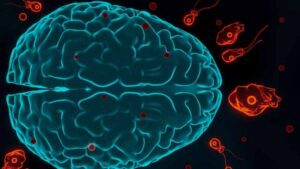
(Image: Getty Images )
Jonathan Schott, a neurology professor at University College London and chief medical officer at Alzheimer’s Research UK, is urging people to take simple and enjoyable steps this summer to support their brain health and potentially reduce the risk of dementia.
Schott emphasizes that these strategies are not meant to feel like a burden. “Keep your brain active by doing the things that you enjoy doing,” he says. “I’ve previously said, ‘If you hate Sudoku, don’t do Sudoku,’ as you’re not going to stick with it.”
1. Learn a New Skill You Actually Enjoy
The first tip is to keep your brain stimulated with new or engaging hobbies. Schott explains, “For some people, that’s reading a book, for others it will be playing chess or learning a new skill like crochet.” Repeating and mastering new tasks can improve brain connectivity, which may enhance mental resilience over time.
2. Be Active Daily
Schott calls daily physical activity the single best thing one can do for both heart and brain health. “Exercise can lower your blood pressure, can lower your cholesterol, can take your weight down and gives you a sense of wellbeing,” he explains. He recommends getting your heart rate elevated for at least 20 minutes, three to four times a week.
3. Take Regular Walks
The neurologist assures that even low-impact activities like walking can make a difference. “We’re not talking about running marathons,” he says. “Some of the research that we’ve done suggests that it’s actually relatively small but sustained amount of activity throughout your life, that may be the most beneficial.”
4. Stay Socially Connected
Isolation is a known risk factor for dementia, and Schott advises maintaining social relationships to keep mentally sharp. “Do things that you really enjoy doing yourself, but also with other people,” he says, noting that staying connected helps you compare mental sharpness and get valuable feedback.
5. Monitor Your Blood Pressure
Schott highlights the importance of managing blood pressure early in life. “We and others have found that it’s your blood pressure in your 30s and your 40s which actually may have the most impact on your brain health,” he notes.
6. Take the Brain Health Check-in
Lastly, he recommends using Alzheimer’s Research UK’s free online tool: “It’s been used by over half a million people… and will come up with some easy-to-follow advice.”
Schott’s message is clear: brain health doesn’t require rigid rules—it starts with small, meaningful actions you enjoy.
- “A Foreign Influence Operation”: JD Vance Explodes Over Politico Report Targeting Trump Peace Envoy Steve Witkoff
- Katy Perry Seeks $5 Million in Damages After Judge Rules Westcott Was “Coherent, Engaged, Lucid, and Rational” in Mansion Deal
- Kate Middleton’s “Outlook Has Changed” as She Makes Intentional Return to Public Duties After Cancer Treatment
- “Instead of Being a Point of Pride”: Trump Administration Seizes Control of D.C.’s Union Station After Officials Heckled
- Illinois Man Accused of Secretly Giving Girlfriend Abortion Pills, Causing Miscarriage


